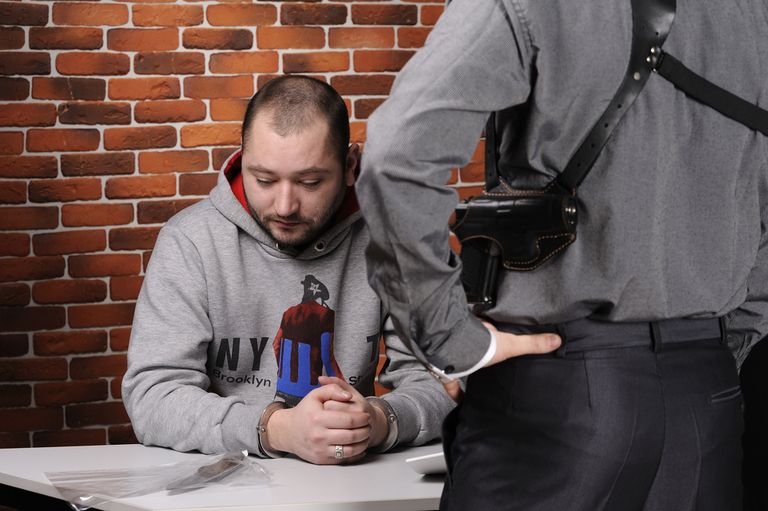Can the Police Lie to You During an Interrogation?
 When a police officer questions a suspect, the ultimate goal is to get the suspect to confess to committing the crime. A seasoned detective typically has a fairly large bag of tricks he/she can use when trying to elicit a confession, including deception. Yep, the police are generally allowed to trick you, or lie to you, when trying to get you to confess. Moreover, the fact that the police lied to you doesn’t render that confession involuntary absent additional facts and circumstances. An Omaha criminal defense attorney offers some insight into police deception and how it might impact your defense.
When a police officer questions a suspect, the ultimate goal is to get the suspect to confess to committing the crime. A seasoned detective typically has a fairly large bag of tricks he/she can use when trying to elicit a confession, including deception. Yep, the police are generally allowed to trick you, or lie to you, when trying to get you to confess. Moreover, the fact that the police lied to you doesn’t render that confession involuntary absent additional facts and circumstances. An Omaha criminal defense attorney offers some insight into police deception and how it might impact your defense.
Conflicting Messages
From the time we are children, we are taught to respect law enforcement officers because they are the good guys. As adults, we tend to assume that means we can trust a police officer to not lie during the course of an investigation and/or questioning. That built-in trust is often intentionally used against a suspect when trying to get the suspect to provide incriminating information or confess.
Was the Confession Voluntary?
When the State intends to use a defendant’s alleged confession against him/her at trial, a common defense tactic is to claim the alleged confession was not voluntarily given. For a confession to be admissible it must have been freely and voluntarily given. Courts have long held that the use of deception when interrogating a suspect does not automatically cause a confession to be considered involuntary. The court will look to the totality of the circumstances to determine if the deception was likely to cause a false confession.
Examples of When and How the Police Can Lie to a Suspect
If you are being questioned about a major crime, the odds are very good that the law enforcement officer(s) doing the questioning is a detective who has lots of experience interrogating suspects. As such, you can almost count on at least some deceptive tactics being used during your “chat.” Separating the truths from the lies probably won’t be easy; however, it may help to be familiar with some common examples of when and how the police often use deception when trying to get a suspect to confess.
- DNA trickery – there is no need to ask you nicely to submit to a DNA test if they can get a sufficient sample to test off the glass of water or can of soda they offered you.
- False evidence claims – they may claim your fingerprints were found at the scene or a paper trail was uncovered proving your involvement in the crime.
- Co-defendant confession claims – this is a classic ploy – pitting two potential suspects against each other. They tell each one that the other has already confessed, making it pointless to remain silent. One, if not both, usually fall for it.
- Non-existent eyewitness – they may tell you that they have an eyewitness who puts you at the scene of the crime or who saw you commit the crime.
- Failing tests – telling a suspect they failed a polygraph is a favorite police tactic.
- Implicit threats – this one is tricky. They can say things like “your buddy will go to jail if you don’t tell us the truth.” They cannot threaten family members with harm nor can they threaten to remove them from your home.
- Explicit promises of help – they frequently offer to help you if you confess or provide them with useful information. Keep in mind, however, that only a prosecuting attorney can actually agree to a plea deal. A law enforcement officer doesn’t have the authority to do that.
Your Right to Remain Silent
Because it is often impossible to know if a law enforcement officer is lying the best policy is to invoke your right to remain silent. Politely refuse to answer questions and ask for a lawyer. Keep asking, and keep silent, until you actually get to speak to an attorney.
Contact an Omaha Criminal Defense Attorney at Petersen Law Office
If you have been arrested for a criminal offense in Nebraska, consult with an experienced Omaha criminal defense attorney as soon as possible. In Nebraska contact Petersen Criminal Defense Law 24 hours a day at 402-509-8070 to discuss your case.


